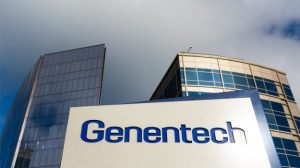Relay Therapeutics recently announced it has entered a global license and collaboration agreement with Genentech in order to develop a tumor treatment. The two companies aim to broaden small molecule inhibitor treatments through this agreement.
Genentech's development may expand into combination studies as they have been committed to studying a common mutated oncogenic called KRAS which is associated with cancer growth. Through this agreement, Genentech looks to treat patients with KRAS G12C mutant tumors. Sanjiv Patel, M.D., President and Chief Executive Officer of Relay Therapeutics said, “RLY-1971 has the potential to serve as a backbone for combination therapy across numerous solid tumors and therefore represents an encouraging approach for cancer patients.”
Relay Therapeutics looks to utilize Genentech's understanding in oncology in the commercialization of this new treatment. Relay will be given a $75 million upfront payment and could potentially receive $25 million in near-term payments. Relay may obtain additional royalties if its RLY-1971 and Genentech’s GDC-6036 gain approval from regulatory bodies. Relay will also gain the rights to combine RLY-1971 with its selective FGFR2 and mutant selective P13KA programs. Relay Therapeutics believes it will have cash and investments to support operations through 2024.
Relay has also been developing RLY-4008, a selective and oral molecule inhibitor. RLY-4008 inhibits FGRR2, a receptor tyrosine kinase often altered in specific cancers. This treatment has previously undergone clinical trials, being offered to patients with intrahepatic cholangiocarcinoma and other solid tumors associated with FGFR2 alterations. A second trial will be conducted to test the safety, tolerability, pharmacokinetics, and anti-tumor effect efficiency on up to 125 subjects.
Relay Therapeutics and Genentech look to offer treatment to patients suffering with mutant cancer tumors with new developments in small molecule inhibitors. Their agreement will lead to treatment options for patients suffering with KRAS G12C through the utilization of knowledge in biology and oncology from both companies.























